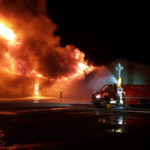“Everything is bigger and better in Texas.”
The obvious message is Texas is just plain better, in large part because of size. But bigger and better than what? Well, everything, of course.
Texas is a big state, but Alaska is bigger by almost 400,000 square miles. A lot of people live here, but more still live in California—about 10 million more. Texas has an enormous economy, but it’s still smaller than California’s, despite significant and continuing gains. As for temples of consumerism—shopping malls—Texas doesn’t have even one of the Top 5 largest malls.
A lot of things are big in Texas, but not everything is bigger.
Bigger we can measure. Better? Well, that’s just plain subjective.
During the day, Texas has a lot of blue sky and also a lot of brown. The stars at night used to be a lot brighter. You can camp in Texas, but you can’t snow ski. Football is king, but the Dallas Cowboys … You get the point.
Despite all that’s good about Texas, not everything is better. But some of it can be.
Positive steps forward
The 2022 Baptist General Convention of Texas annual meeting was peaceful. That sounds boring, but a so-called boring meeting isn’t bad. Boring can be bad, though, when it obscures cause for celebration.
One thing worth celebrating is the work of The Pastor’s Common. Over the last couple of years, this group of young adults has coalesced and grown.
Sign up for our weekly edition and get all our headlines in your inbox on Thursdays
They and other young adult leaders gained statewide attention last year in Galveston with a motion—adopted by messengers to the 2021 BGCT annual meeting—to “appoint a task force to study and recommend ways to increase involvement of Millennial and Gen Z Baptists in the life of the convention and its cooperating churches.”
The task force reported its findings to the 2022 gathering and brought a new motion—also adopted by messengers—to “appoint a task force to explore the creation of a residency program whereby young ministers are mentored and trained by established ministers.”
The Pastor’s Common invited me to their Monday evening event, and what I witnessed definitely is worth celebrating. I saw a room of great diversity among about 100 Millennial and Gen Z men and women fervently worshipping God.
They discussed their concerns about rampant biblical illiteracy, poor pastoral health, the lack of pastors, declining church attendance and the destabilizing of denominational structures. They want to reverse all of these.
They reject consumer Christianity, Christian nationalism and homogeneity. They are seeking effective discipleship models and better uses of technology. They embrace women in ministry and creativity.
They desire to be mentored and welcomed into convention leadership. We should meet them with both.
Room for improvement
Not to be overlooked in the quiet of a peaceful convention are two significant resolutions adopted without discussion.
Resolution II calls out our culture’s focus “on divisive, condemning rhetoric at the expense of the grace, truth, and love that characterize the gospel.” In response, the resolution calls on Texas Baptists to “seek to follow the way of Jesus in how we engage our culture” and “to avoid cruel jokes, mockery, and belittling language as we articulate our biblical convictions.”
I celebrate this resolution and the fact it was brought by members of the Millennial and Gen Z Task Force. It is countercultural; it is good trouble. It demonstrates young adults’ commitment to being like Jesus in this world. If we will embody this resolution, Texas—and far beyond—will be better.
Resolution III is also more important than suggested by its muted reception during the annual meeting. Messengers resolved to “not support any attempt by government to commandeer the church for political ends or any attempt by government to favor one religion over another.”
Texas Baptists resolved to “affirm the historic tenets of religious liberty” and not to “seek to use government to coerce the worship of Christ.”
I celebrate this resolution, too. But one of my brothers in Christ is disappointed with it. He told me later he is disappointed Texas Baptists did not take a firmer stand by naming Christian nationalism in the resolution.
He said Karl Barth and his colleagues did not shy away from naming evil in the Declaration of Barmen. They condemned the Nazis and the Nazi perversion of Christianity by name.
More than the resolution, I celebrate my brother in Christ and join him in urging Texas Baptists to call out Christian nationalism for what it is—a syncretistic heresy, an unfaithful parody of the way of Christ.
Getting better
In his convention address, outgoing BGCT President Jason Burden extolled Texas: “Everything is bigger and better in the state of Texas.”
Though I’ve challenged his high praise of Texas, Burden and I are aligned on his conclusion: “A Texas without Jesus is not a Texas worth bragging about.”
Texas is a big state. Its problems can be big, too, but not bigger than the power of Jesus Christ lived out through those who follow him.
As much as there is to love about Texas and Texas Baptists, there is room for improvement. Not everything is better in Texas, but more can be. If we will live as Jesus taught and commanded us to live, more will be.
Eric Black is the executive director, publisher and editor of the Baptist Standard. He can be reached at [email protected]. The views expressed are those solely of the author.














We seek to connect God’s story and God’s people around the world. To learn more about God’s story, click here.
Send comments and feedback to Eric Black, our editor. For comments to be published, please specify “letter to the editor.” Maximum length for publication is 300 words.